Aaron and Susan Von Frank and their son live on a homestead in Greenville, South Carolina.
Back in 2010, they bought a domain and started sharing content about their daily lives for fun: foraging, cooking, gardening, and raising ducks.
They shifted their focus to create a certified organic seed company a few years later, Grow Journey, and completely neglected their original homestead and gardening site, Tyrant Farms.
When they checked its stats a few years later, they were pleasantly surprised to see its traffic growing. They went all in on that site, learning SEO and monetizing and growing it. Difficulties during the pandemic led them to pivot in their seed business but maintain the website.
Today they have two blogs on Mediavine, earning $7k per month combined, and have the freedom to live the lifestyle they’re passionate about while spending time with their son.
Keep reading to find out:
- How their main site got its name
- The steps they took to grow Tyrant Farms
- Why they shut down their seed company
- How they prioritize their tasks
- How much they work on their site
- What incomes streams they have and plan to create
- How much traffic their site gets
- Their main marketing strategy
- Their thoughts on SEO
- Their approach to keyword research
- How they build links and link internally
- Their content creation process
- How they grow their email list
- The resources and tools they use
- The biggest challenge they’ve faced
- Their greatest accomplishment to date
- Their main mistake
- Their advice for other entrepreneurs
Meet the Von Franks
We’re a husband-and-wife team with a four-year-old son, 11 ducks, and one cat living on an organic, urban micro-farm/homestead in Greenville, South Carolina.
Susan and I (Aaron) have been a couple for two decades, and we’ve been married and working together as business partners for about half that time.
Thankfully, we really like each other since we’re physically together and collaborating on our personal and professional lives 365 days per year.
I guess the simplest way to describe myself at this point is a “writer,” since I create almost all the content for our two websites, Tyrant Farms and Grow Journey.
I’ll also be the lead writer on a book Susan and I are creating about raising ducks, which will hopefully be published sometime in the next year.
I was a Political Science major back in college at Furman University, but I decided to skip law school and start a business instead.
Susan is a professional graphic designer with a B.A. in Biology from the College of Charleston. She jokingly earned the nickname “The Tyrant” (from me) back around 2008 when she kept bossing me around. She’s a fairly benevolent dictator though.
Why They Created Their Websites
In 2010, we started posting miscellaneous gardening, foraging, and cooking articles on our first website, Tyrant Farms, named in Susan’s honor.
It was a purely non-commercial endeavor and we had no idea what we were doing, nor did we ever intend to make money from it. We got our first ducks in 2013 and started sporadically writing about them as well.
In 2014-15, we started a certified organic seed company, Grow Journey. That endeavor took our focus away from Tyrant Farms, so we didn’t publish a single article on Tyrant Farms for over a year as we started that business.
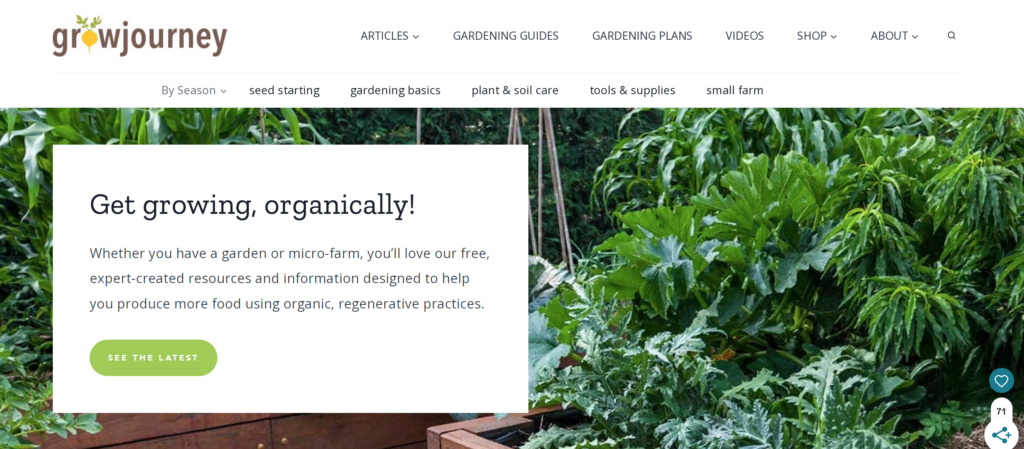
At some point around 2016, we randomly looked at the site metrics on Tyrant Farms and were surprised to see that the traffic had been steadily increasing despite our complete neglect.
Around the same time, Susan started becoming aware that there were people actually making a career out of blogging, so we began publishing articles again and taking things a bit more seriously.
We joined the Amazon Affiliate program and began (barely) monetizing with Google Ads. For a few years, Amazon also had an ad program which we were accepted to and used for a bit.
By late summer 2018, we had enough site traffic to join Mediavine and start really monetizing our efforts.
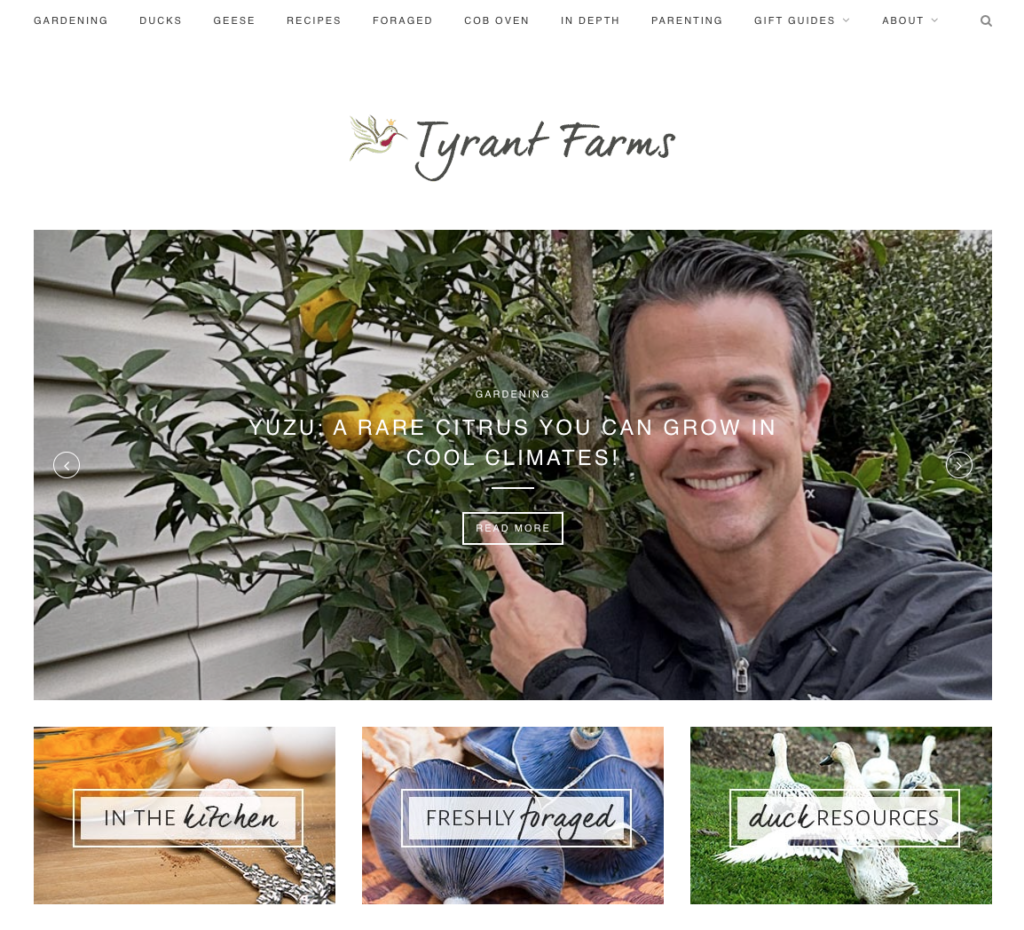
Fast forward to 2020, and we decided to shut down the seed sales side of GrowJourney due to all sorts of pandemic-related complications and instead pivot the company into an education-focused company for gardeners and market gardeners/micro-farmers.
The articles we’d already created on that website were generating enough traffic that it had been part of Mediavine’s ad network since 2019.
At that time, we were also making pretty good money from Amazon affiliate sales on both sites. However, in early 2020, Amazon cut way back on affiliate commissions, which stung us and countless other small online businesses.
We still do ok on Amazon, but sales that used to earn 7-8% now only earn 3%. Obviously, Amazon needs the money a lot more than we and other small business owners do, so I harbor no bitterness regarding their decision. (Ha.)
Our biggest challenge has been and continues to be what I describe as “having too much bread and too little butter.” In short, we’re spread pretty thin.
We have two businesses/websites, we still have some outside clients we work for, we’re parents, we have animals and plants that require care, etc. On any given day, there’s simply not enough time to get everything done that we need to get done.
Often, unless something is on fire, exploding, dying, or causing an existential crisis, it gets pushed to the back burner.
Thankfully, despite our chronic neglect and mismanagement, our websites have pretty consistently grown year-over-year, despite the occasional painful hiccups that come from Google algorithm updates.
How Much They’re Making
In 2023, Tyrant Farms generated $57,657 in ad revenue via Mediavine and $6,370 in Amazon affiliate sales. That’s not great, but considering Susan was unable to do pretty much any work on the site due to outside obligations and I maybe averaged 3 hours/day on the site, it could certainly be a lot worse.
GrowJourney’s 2023 numbers aren’t very good: $25,400 total ($20,700 in Mediavine ad revenue and $4,700 in Amazon affiliate sales). That’s actually the worst year we’ve had on that site in many years. We kind of deserved it though since we almost didn’t touch the site at all last year and it was old and clunky to use.
We just completed a major update to it on January 13, so it should perform better now, especially as we do regular content updates. We’re about to do a major redesign of Tyrant Farms in the months ahead. Hopefully, those efforts will have positive results.
This year, we’re also planning to publish our first book (about raising ducks) which will also help generate additional income while increasing our content authority/site traffic on our digital duck articles.
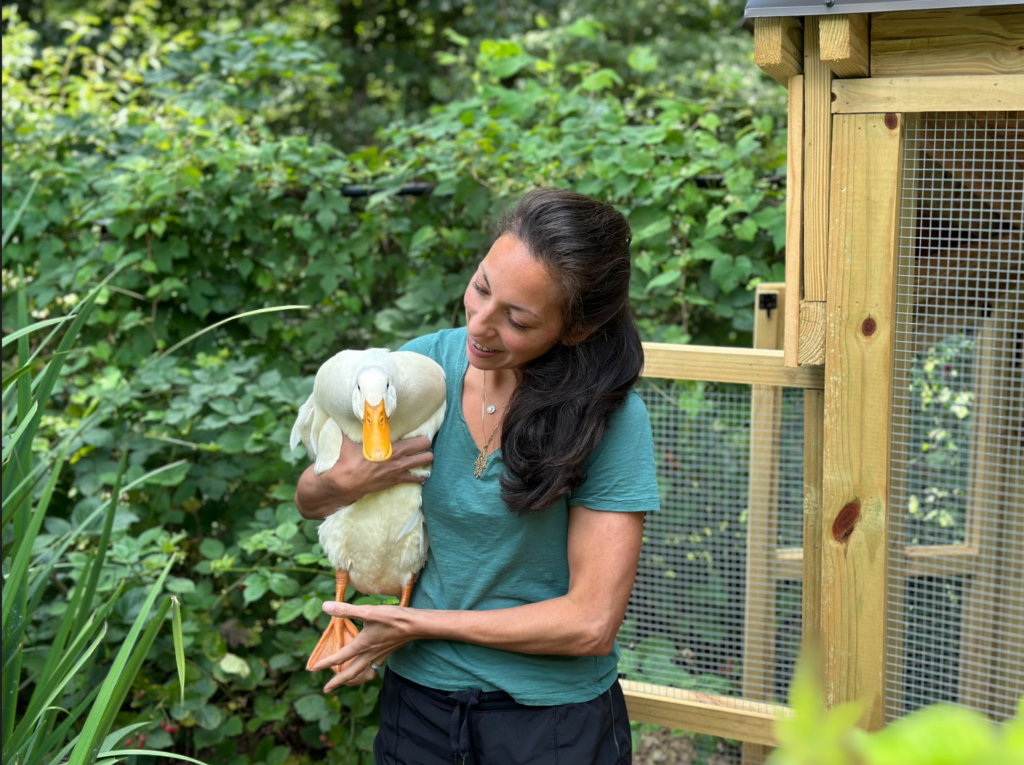
We’ve reached out to a couple of publishers and we’ll see how things go. If this book goes well, we’d also like to publish additional books related to core content on our site.
Why ducks? Because they’re amazing, highly entertaining animals that also produce delicious eggs which are larger, more flavorful, and more nutritious than chicken eggs.
However, much of what we write on our site, social media, and in our book will be aimed at discouraging people from getting ducks unless they’re fully prepared to do so.
So many people impulse purchase ducklings at Tractor Supply or elsewhere, then the ducks are quickly killed or injured by predators like racoons, hawks, or neighborhood dogs because the person didn’t properly prepare.
Or, if the ducks do manage to survive into maturity, people often then abandon them at nearby ponds once they realize ducks take a lot of specialized care, and home-produced eggs are way more expensive than store-bought eggs. We also have ducks that are over 10 years old, so it’s not a short commitment.
This is a pattern that really needs to stop, because it’s cruel, completely unnecessary, and has the potential to cause genetic pollution in wild mallard populations. (Domestic ducks are the same species as wild mallards, but they’re bred to be flightless and lay more eggs, ergo these are not ideal genes to re-introduce back into wild, migratory populations). Just because you see a cute pet duck on Instagram or TikTok doesn’t mean you should go out and get one.
Get a chia pet or hamster unless you know what you’re getting into and are prepared to give your ducks a long, good life. And if at all possible, get your ducks from a waterfowl rescue operation instead of the commercial alternatives.
How Much Traffic Their Site Gets
Tyrant Farms generated a little over 1 million sessions in 2023. Year-over-year site traffic has sort of plateaued right now, which is somewhat expected given our rate of new content creation and old content updates.
What happens is previously high-performing content on our site gets slowly eroded by new content created by other sites. So even as our new content starts performing well and driving new traffic, it’s basically just replacing our lost traffic, like a ship taking on water.
Now that we’re acutely aware of that problem, we’re going to do our best to address it, primarily by using RankIQ to help identify which articles are faltering, then updating and optimizing that old content.
Averaged over a year, I probably spend 3 to 4 hours per day across both of our websites (that total includes our social media posts which are largely intended to drive traffic to our sites). Susan probably averages about 1 hour per day.
There are spurts/windows where we might pull 8- to 10-hour days and time windows when we’re unable to work on our sites for multiple weeks at a time.
Their Main Marketing Strategy
I’ve really tried to focus on producing the highest quality, long-form, evergreen content (at least seasonally evergreen) as possible, where applicable. I also try to inject a bit of humor and relatable humanity into our articles to better connect with our readers.
My working assumption (and hope) over the past few years has been that if we create the best content out there on the subjects and keywords we cover, then we’ll be rewarded by search algorithms and actual human beings sharing our content.
The Importance of SEO
SEO is probably too important for our business, unfortunately. It would be nice to be able to drive a ton of direct traffic to our site via our social channels, email marketing, or other marketing efforts. However, we currently live and die based on whether Google likes us.
When Google likes us, life is good. When an algorithm update hits us, it’s incredibly frustrating.
It’s not an ideal business model to operate under where your traffic and revenue can suddenly decrease 30%-70% overnight based on programmatic tweaks employees at another company decide to try out on any given day.
In the future, we want to be much less dependent on SEO for revenue.
Hopefully, we can drive traffic and/or revenue through some combination of book publishing, online courses, better email marketing, and/or better social media outreach.
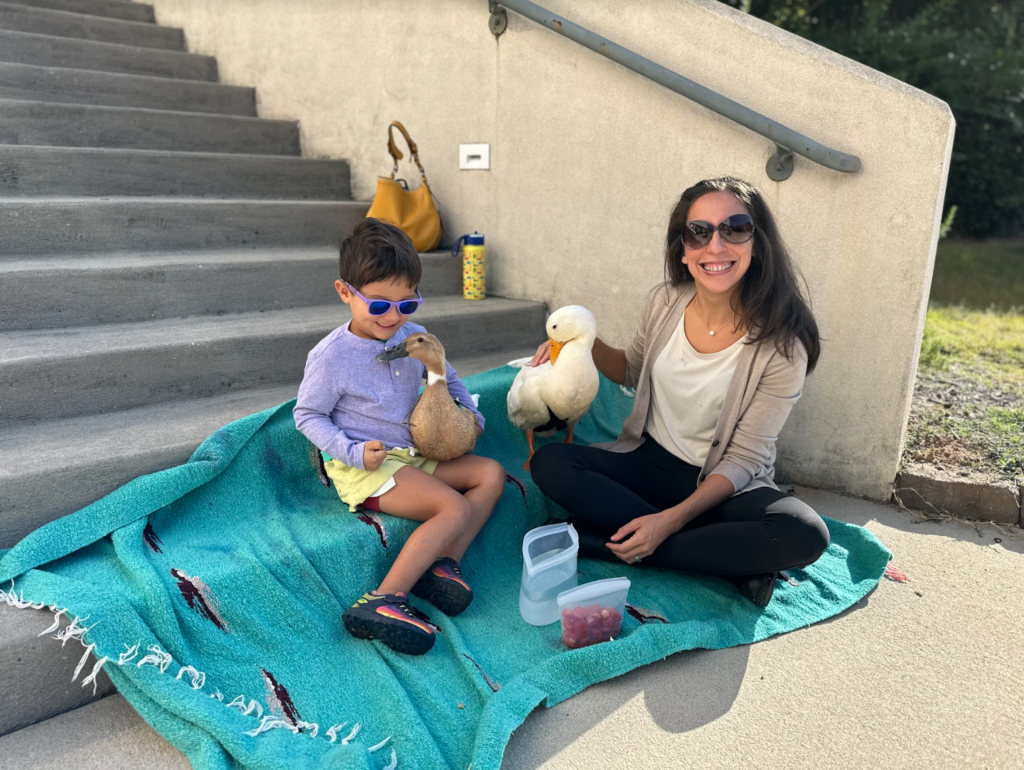
Keyword Research
Content ideas originate depending on what we’re doing in our actual lives, which probably isn’t ideal nor does it reflect a great deal of technical sophistication!
For instance, if we’re growing, foraging, or eating a certain plant or fungi, I’ll decide to write on that topic. If we have a new DIY garden project, we’ll write about it.
However, I am a bit more sophisticated and disciplined than I used to be when it comes to the actual creation of the content. Susan found a good tool (RankIQ) which I now use for deep dives into keyword research.
I also still do the standard protocol of looking at “people also ask” in Google SERPs and taking a close look at high-ranking content already published on competing sites to determine how we might do it better and/or differentiate.
Internal Linking and Link Building
I’ve long been big on internal links between related content on our site and related content between both of our sites, Tyrant Farms and GrowJourney. There’s a lot of synergy between those two sites.
I don’t do any outreach to other website publishers to ask for backlinks, which is something many pro bloggers do. Backlinks just happen organically for us—or they don’t.
I also ignore the dozens of emails I get each day from people asking us to give them a link from our site(s) in exchange for a link from theirs because I simply don’t have the bandwidth to sift through all the solicitations and determine if any of them are worth it.
Our outbound links are mostly to sources like university extension agencies, published peer-reviewed research in good journals, etc.
At a minimum, I think it’s a good idea for new or intending publishers/site owners to focus on developing content clusters within their primary categories that they can consistently build up over time and link between.
For example, we have a lot of citrus recipes and citrus variety grow guides because we grow a lot of potted citrus. These articles are nested under our Recipes and Gardening categories.
Each new citrus season means more clustered content and more internal linking.
Their Content Creation Process
Tyrant Farms has about 400 published articles. When you’re a new publisher, the challenge is not having enough content, and simultaneously trying to get the attention of search engines/readers.
The challenge with where we are now (hundreds of articles) is how best to organize, update, and promote the content we already have while still finding time to produce new high-quality content.
Our current WordPress theme isn’t ideal for a site with as much content depth as we have. As mentioned previously, we’ll be switching themes and doing a major update to Tyrant Farms to make it much easier to discover relevant older content and (hopefully) increase pageviews per session by making the site more sticky.
We just completed a similar process on Grow Journey, which has a lot less content than Tyrant Farms so it was an easier undertaking.
Also, a lot of our very early content on Tyrant Farms isn’t good, and some SEO experts would probably recommend deleting it. But a lot of it is still pretty solid and just needs to be reworked, a process that still takes many hours per article.
Ideally, we could consistently produce at least two new articles per week and update two old articles per week. We’re rarely ever able to achieve that level of productivity though.
Their Email List
Tyrant Farms only has about 4,500 email contacts, which shows how poorly we’ve managed our email capture and email marketing efforts over the years.
We do the bare minimum to grow our email list: subscribe features on our site and articles with a delayed fly-in subscribe form that’s triggered when someone starts to break away from the content.
We don’t hit people with a fly-in subscribe option right when they arrive on our site because we find those annoying since there hasn’t been anything provided or a relationship established before the ask is made.
We have MailChimp RSS campaigns set up with category-specific subscribe features enabled. So, if someone just wants to get our latest duck articles, they can do that. Or if they want to subscribe to a few or all categories, they can do that too.
Here again, we know we can and should be doing a much better job with our email marketing efforts since it’s something that we own and a Google algorithm update can’t impact it, but we just haven’t prioritized that area.
We’re in the process of switching from MailChimp to ConvertKit but don’t have the experience or data to make any comparison statements or recommendations about that platform.
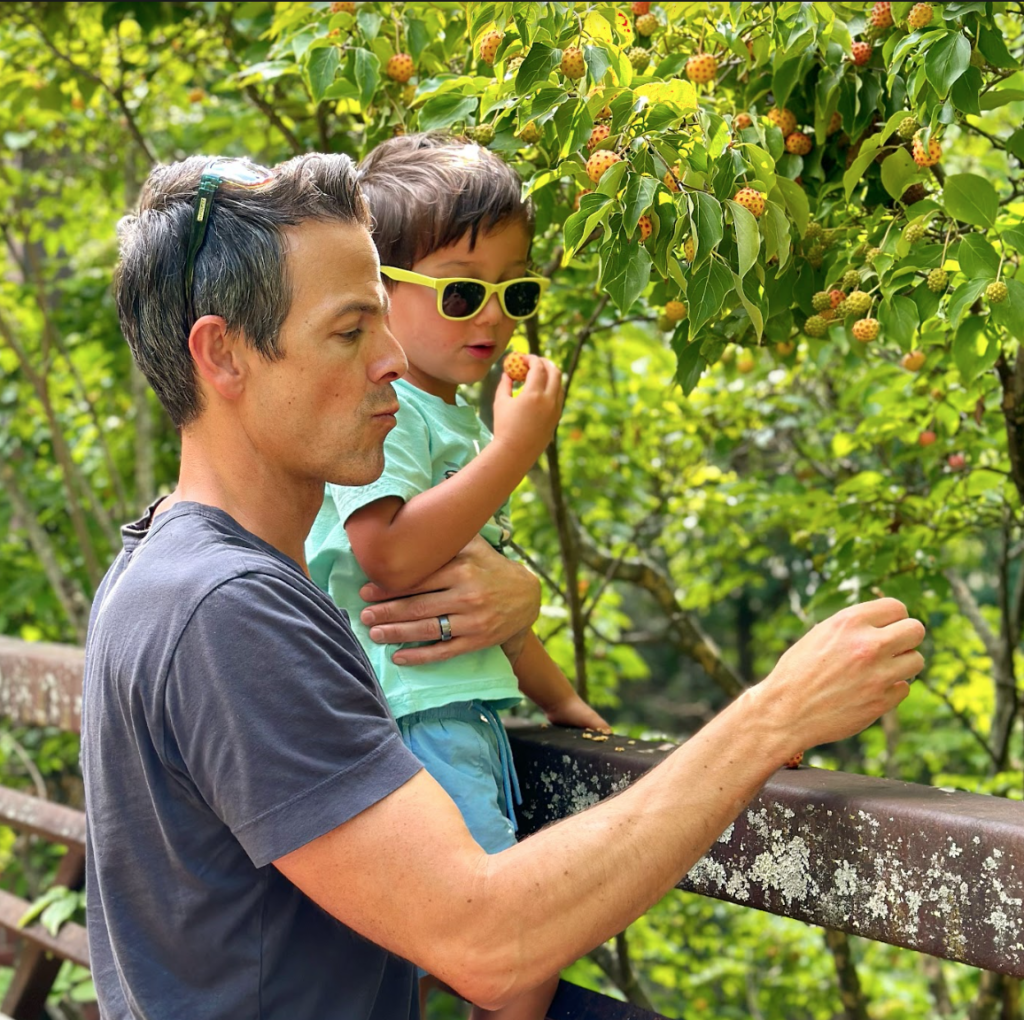
Their Favorite Resources
Mediavine has, by far, been the best resource for our online businesses.
Yes, you have to have a lot of traffic coming to your website to be part of their ad network, but they have tons of helpful free resources (like a blog and podcast) that are available to help new or intending web publishers who are trying to figure out how to get started and turn their blogs/sites into businesses.
Mediavine’s private Facebook group for publishers is also really helpful since it’s basically a bunch of pro bloggers sharing tips and resources they’ve found efficacious.
I don’t use Facebook or any social media for personal use any more because it’s too damaging to my mental health and productivity, but thankfully Susan is able to put on “Facebook newsfeed blinders” and still goes to those groups to glean valuable information from time to time.
Their Go-To Tools
The tools we use consistently in our business are:
1. Mediavine (ad network)
2. Amazon Associates (affiliate sales)
3. RankIQ (for SEO)
Those are technological tools, but it’s ultimately the biological tools that matter the most, aka the humans operating the tools.
Something many people (including entrepreneurs) neglect is taking care of themselves first, which is especially hard to do when you’re starting or growing a business.
That means eating in a way that promotes health and mental clarity/focus, exercising regularly, having good sleep hygiene, avoiding negative addictions, and thoughtfully developing all the small daily habits that optimize your healthspan and lifespan.
Who cares if your business generates a bunch of money if you’re sick or dead — or if you leave a trail of damaged people and relationships in your wake? You’ve missed the mark.
Their Main Challenge
A common thing that people love about the idea of being an entrepreneur is not having anyone to tell you what to do. However, the driver’s seat isn’t all bunnies and cupcakes.
Once you’re the only one deciding what to do on a daily basis, you’ll sometimes wish you had a boss to toss a to-do list on your desk, or the ability to let your brain check out at 5 pm every night.
Having to constantly figure out the highest and best use of the few precious working hours we have each day can be daunting. And when you feel like you’ve worked your tail off and made really good decisions but you still get hammered by a Google algorithm update, it can be really discouraging.
No matter what type of business you’re growing, your judgment and resilience will be constantly tested, and you have to simultaneously be your own worst and most helpful critic to keep going. And it really helps to have people you love in the trenches with you.
Their Most Important Accomplishment
Our greatest accomplishment is creating the conditions that allow both parents to be present for our son.
Raising a child is the most difficult and important work we’ll ever do. In the developed world, there’s no harder place than the US to give birth or raise a child, if you look across a broad range of metrics.
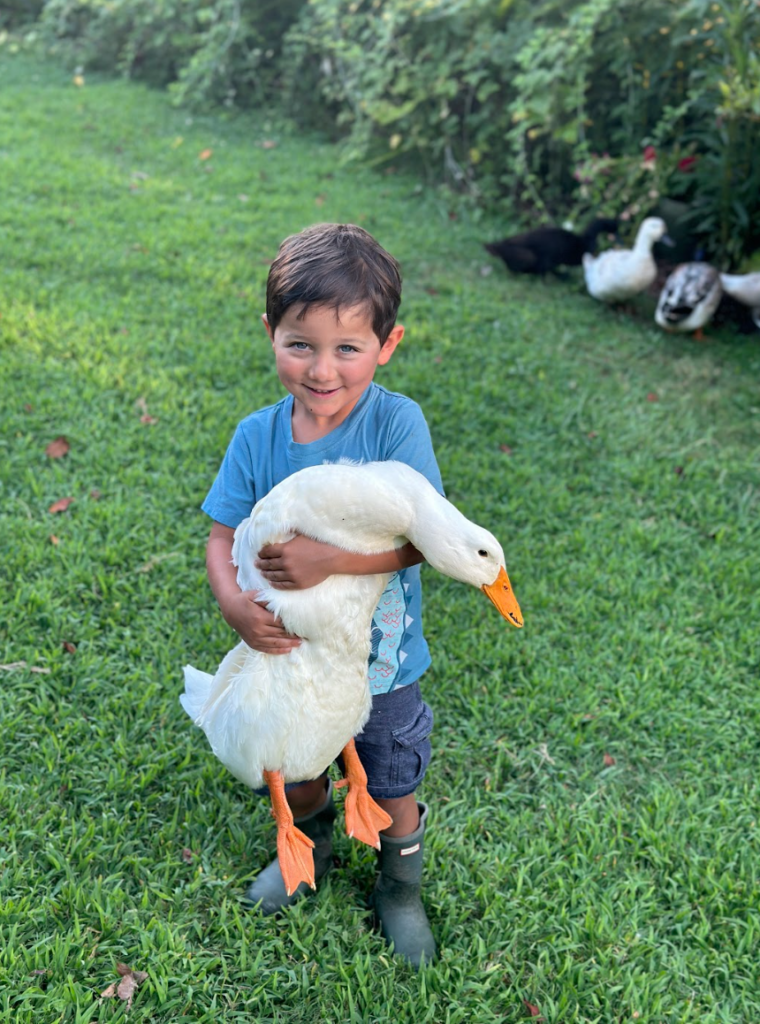
So we’re incredibly grateful that the peculiarities of our professional endeavors provide a cushion that helps us be the best parents we can be to our son, and we’re also incredibly thankful we get to spend so much quality time together.
When we’re old and gray, we’ll look back on this time with longing, but not regrets.
What He Wishes They Knew When They Started
Blogging can be a good business if you’re very focused, goal-oriented, and consistent. If you don’t have kids yet, you also have a massive advantage because you won’t constantly be harried, time-starved, and exhausted!
Their Biggest Mistake
A lack of crystal clear focus created by a lack of crystal clear goals would be our main mistake. We’re pretty good at improvisation and moving the needle upward through intuition combined with consistent effort.
However, we could have and should have grown faster, sooner, and smarter by way of clear goal-setting and staying more focused on the 10% of things that create 90% of the positive impact on our business.
Is it possible to have a goal to be better at making goals?
His Advice for Other Entrepreneurs
That’s a tricky question because of the unique nature of this particular point in human history.
The combination of AI and quantum computing is about to fundamentally alter the world in ways my imagination can’t fathom. These are technological quantum leaps beyond anything humans have ever created before, and it’s hard to say what the landscape is going to look like in 3 to 5 years, much less 10.
There will be novel opportunities created and entire industries upended. That’s how creative destruction works. However, the disruptive nature of these technologies seems many orders of magnitude beyond anything that’s come before.
With that scary-sounding context in mind, I hope entrepreneurs can find defensible niches wherein those aforementioned technologies can’t easily do the same thing faster, better, or less expensively.
We’d also advise you (entrepreneurs) to take care of yourself and the people you love first. I’ve yet to see a stack of money that’s worth chronic illness, premature death, or neglecting the people I care about.
